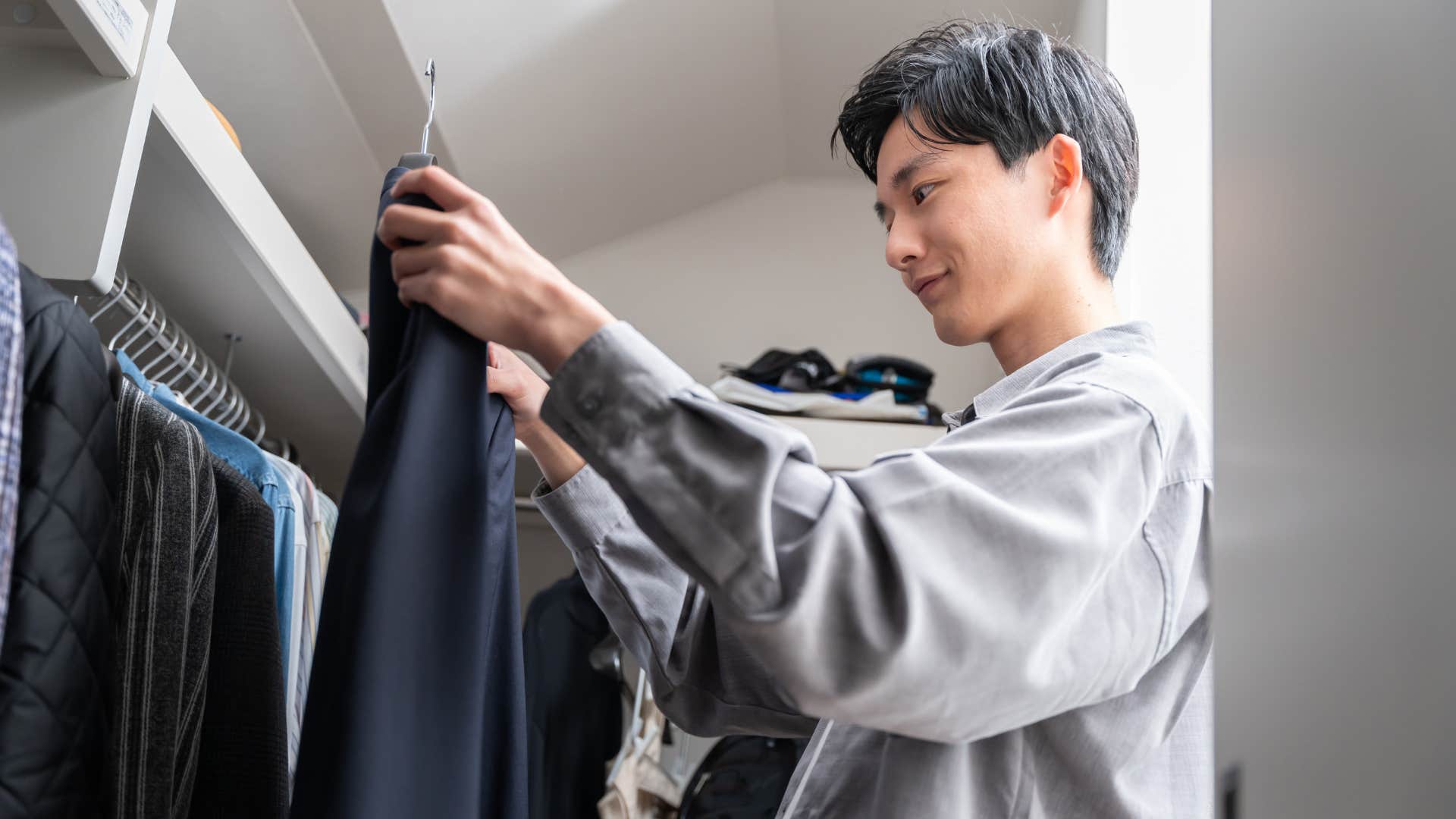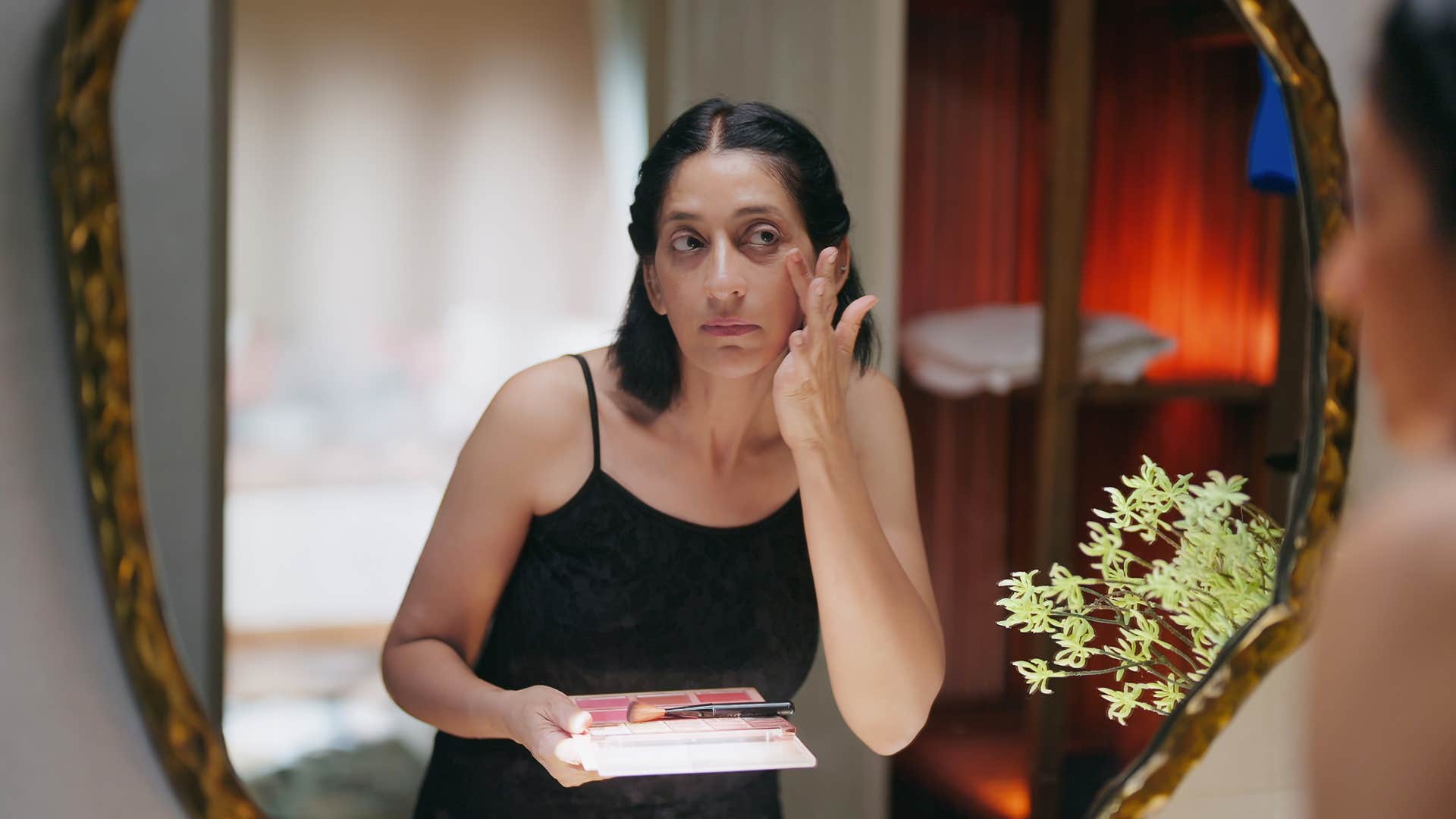If You're Really Good With Money, These 11 Things Won't Be In Your Home
A peek inside your home can reveal just how good you really are with money.
 Tanja Nikolaenko | Shutterstock
Tanja Nikolaenko | Shutterstock Being good with money isn't just about having it saved in a bank account; it shows in the way you live and what you allow into your home. The items you choose to buy (or skip) say more about your financial habits than your bank statement ever could. People who are genuinely smart with money know that even seemingly harmless things can slowly drain your savings, so they’re careful about what they bring through the front door.
For these people, every purchase has to make sense long-term. They keep a close eye on bank statements, cancel anything they don't use, and avoid impulse buys that only feel good in the moment. It's all about protecting their financial security and avoiding the kinds of mistakes that leave other people drowning in debt. If you're truly a self-proclaimed money-saving guru, you won’t find these things anywhere in your home.
If you're really good with money, these 11 things won't be in your home:
1. High-interest credit card bills
 Pormezz | Shutterstock
Pormezz | Shutterstock
Any sort of high-interest credit card bill will never be in the home of someone good with money because they pay their debts off rather than letting the letters of notice sit there. Smart money-savers people don't let credit card balances pile up — they pay them off before interest can even touch them. They know debt is one of the fastest ways to drain savings and lose financial security.
Even if someone in their family needs some sort of financial assistance, they treat it with caution because there's too much at stake to help people out so willingly when it comes to finances. It's not that they don't care; it's just that they have heard too many horror stories of fraud and identity theft. It's one thing to dig yourself into a hole, but it's a whole other thing to have someone else commit fraud on your behalf.
For many Americans, this is a very real thing that happens, and it falls on them to fix it whether they like it or not. As of June 2025, the average household with revolving credit card debt owned $10,815. This is a staggering number, and many lose a sense of safety when they get into this type of debt.
2. Unused subscriptions or memberships
 Antonio Guillem | Shutterstock
Antonio Guillem | Shutterstock
We could all save money every year by canceling the subscriptions and memberships that we don't use regularly. Yet, for some reason, we can't seem to let them go as easily as people who are good with their budgeting. People who are good with their money know what to spend their money on and how.
While they are not a hundred percent frugal, they do have frugal-like tendencies. If they’re not using it regularly, they cancel it. People who are good with money won’t let a forgotten streaming service or gym membership eat away at their budget month after month.
Unfortunately for the rest of us non-frugal folks, canceling some of these subscriptions can be difficult because of our strong attachments to them and the challenges involved in ending them. Some subscriptions are set up to be intentionally difficult to cancel, often forcing consumers to lie about the reason why they have to cancel.
3. An overstocked fridge with expired food
 aslysun | Shutterstock
aslysun | Shutterstock
Wasting food is wasting money. People who are financially responsible will never have an overstocked fridge with expired food that they just let sit there to rot. The average American throws away $53.81 worth of spoiled food from their fridge every week, totaling nearly $2,800 annually.
Financially smart people buy only what they’ll actually use, and they make sure it gets eaten before it goes bad.
There are simple ways to help food stay fresh longer. However, for many, the challenge isn't just about saving money; it's often about the desire for immediate satisfaction. They tend to want things right away, especially what they desire most, and might overlook what they already possess. That's why, even after grocery shopping, they often feel the need to get some ready-made food along with their groceries.
4. Excessive home decor
 Stock-Asso | Shutterstock
Stock-Asso | Shutterstock
Some people say that you can never have too much of something in your home, but your bank account might disagree. People who are good with their money will feel content with just one piece of home decor rather than several. They appreciate a well-decorated home, but they don’t need a dozen throw pillows or plants in every corner. For them, “less is more” saves both space and money.
There are inexpensive ways to decorate your home without breaking the bank or getting into debt. Those who are better equipped at dealing with their finances can make even the most mundane furniture appear stylish with the proper tools and artistic vision. For them, too much of something makes their homes feel cluttered and messy.
5. Gadgets that serve one purpose
 RossHelen | Shutterstock
RossHelen | Shutterstock
Those who are good with their money would never purchase gadgets that serve no purpose. While having a touch-screen tablet that can control all of the lights in your home sounds cool, it's unnecessary and expensive. You can simply turn a switch on or off on the wall manually.
People who are really good with money will skip the trendy one-task gadgets and stick to things that have multiple uses and will last for years. If it's not essential, they don't buy it.
Some inventions aren't necessary to have within your home when you already have other ones that can do that simple thing. What separates people who are good with money from those who are not is that they know what to spend their money on. They choose things that serve a purpose for a long time and are budget-conscious.
6. Late fees or unpaid bills
 F01 PHOTO | Shutterstock
F01 PHOTO | Shutterstock
Unpaid bills would never be something that you would find in someone's home if they are good with money. They would rather be in good standing than owe anyone anything. Late fees are treated the same way within their households, with these expert savers paying in advance to avoid getting these fees.
Unfortunately, not everyone is as well-managed with their finances and sometimes requires payment plans to pay a hefty bill. Around 61% of individuals who paid a bill late recently did so because they couldn't afford it. Life can be fickle, and circumstances change so rapidly that it's understandable when someone forgets to pay a bill or two.
7. Clothing that they have never used before
 polkadot_photo | Shutterstock
polkadot_photo | Shutterstock
If you look at someone's closet, it can tell you whether or not they are good with money. If they have worn a majority of their wardrobe, then they are great with it, but if you notice that they rarely wear anything from their closet, then they simply buy clothes and forget about them.
This is considered wasteful to a person who is good at managing their finances. A closet full of untouched clothes is just money sitting there collecting dust.
People who make good money choices use what they buy, and when they don't, they either give it away or donate it to someone who will use it. They are extremely resourceful people who will use old, worn clothes in new projects. Essentially, they repurposed their old digs into something brand new.
8. Expensive furniture bought on credit
 fizkes | Shutterstock
fizkes | Shutterstock
People who are good with money usually set aside a budget for large purchases like new furniture. They dislike putting anything on credit because they would rather pay for it up front and own it than owe on it.
While there is nothing wrong with renting furniture and paying little by little, it can get messy when you have visitors over and something happens to it. Imagine people dirtying up your brand-new white leather couch that you are still paying off. It can sting, considering that you don't necessarily own it yet and managed to get it stained almost immediately.
9. Unused beauty products
 Raushan_films | Shutterstock
Raushan_films | Shutterstock
When you're on a budget, you want cosmetics that are not only cost-effective but natural as well. We can be so quick to buy a lot of different makeup and leave them sitting in our bathrooms for months without ever touching them. Not only is this wasteful, but it can also be dangerous because these products don't last forever and can harm your skin if they expire.
People who are good with money only buy cosmetics they’ll actually use and make sure to finish them before they expire. No cluttered bathroom cabinets full of unopened makeup here.
In brands' supply chains alone, over 10% of beauty products, depending on the category, end up as waste due to factors like unsold inventory, product testers, and items expiring at stores or in homes. A person who is good with money will rarely have unused beauty products in their homes. Women make the most of the makeup that they have and will use it before it expires.
10. Lottery tickets
 PR Image Factory | Shutterstock
PR Image Factory | Shutterstock
As much as I love scratch-offs, I have to admit that the money used for them could have gone to something more important. That's why you will never see stacks of lottery tickets lying around the home of someone good with their money. They don’t gamble on luck to build wealth.
Instead of spending money on tickets, they invest in things that give a guaranteed return.
Trying to win the lottery is a gamble, and even if you do end up winning, the earnings are very little after the government takes its portion of the money. Lottery outlets are not randomly placed. They tend to be clustered in certain neighborhoods that are urban, commercial areas with the lowest poverty levels. Unfortunately, this results in the highest gambling addiction rates in some of America's poorest communities.
11. Trendy fitness equipment they only use on occasion
 Davor Geber | Shutterstock
Davor Geber | Shutterstock
People who are really good with their money never make large purchases like an in-home gym equipment that they're only going to use on occasion. They know that they don't even need major equipment to get their workouts done, especially when there are apps out there that can help.
While it might seem nice not to have to spend money on a membership to the gym or going to a class, they would rather save their money for other things. If they’re not committed to using it regularly, they don’t buy it. They know there are cheaper (and more effective) ways to stay fit without letting an expensive treadmill become a clothes rack.
People who are really good with money are resilient with a high sense of self-control. Next time you inspect their homes and notice all the things that they don't have, remember that it's probably because they are just good at saving their money.
Sylvia Ojeda is a screenplay writer and journalist who covers self-help, relationships, culture, and human interest stories.

